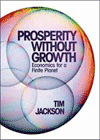Values and sustainable lifestyles: the 21st century living project
Overall aims
There is increasing pressure on households to change lifestyles and adopt behaviours which require less energy and natural resources. At the same time, retailers and producers of consumer goods aim to persuade people to consume more through commercial advertisements. Much social science research fails to examine the relative influence of both environmental concern and materialism simultaneously. Moreover, it tends to focus on behaviours with pro-environmental intent, thereby ignoring many consumer behaviours which may have a significant environmental impact.
This study aims to address some of these shortcomings by examining the relationships between materialism and environmental concern and different behaviours, as revealed by a year-long household-based study on sustainable living.
Context
The 21st Century Living Project aims to provide an in-depth understanding of UK householders’ behaviour and lifestyles, utilising multiple measures to monitor consumption patterns, and investigating ways in which householders can reduce their environmental footprint and increase home energy efficiency (http:21stcenturyliving.edenproject.com).
The study (managed by EDEN project and ACONA consultants and funded by HOMEBASE) examined the effect of a range of interventions on household consumer behaviour. RESOLVE was involved in the project to study the link between values and behaviour (change).
Research questions and methods
The research examined the link between general values, materialism and environmental concern on the one hand and the consumer and environmental behaviours on the other focusing on intentional pro-environmental behaviours as well as other behaviours. Participants for the study were recruited from a sample of UK households who own a store card of a major DIY chain in the UK. Questionnaires were sent to all household members aged 16 and over in each of the participating households in July/August 2008, and again in July/August 2009. A total of 133 respondents from 100 households completed and returned both questionnaires. Respondents’ age ranged from 16 years to 73 years, with an average age of 43 years; 51% of respondents were female, and 49% male.
Results
Many people express both relatively high levels of environmental concern and relatively high levels of materialism simultaneously. Materialism and environmental concern did not change over the period of the project. As expected materialism was negatively related to wellbeing, but environmental concern was not. Moreover, materialism and environmental concern appear to be related to different types of reported behaviours and behavioural intentions in the first survey. Intentions to adopt pro-environmental behaviours at the start of the project were most likely among those with relatively high environmental concern and low materialism. Although values were related to reported behaviours and behavioural intentions at the start of the project, they had less impact on the responses to the project.
There was only a weak relationship between what participants intended to do at the start of the project and what they said they had done at the end of the project. This suggests that actual behaviours were not as planned. Values were neither related to reported behaviour at the end of the project nor to actual behaviour changes.
Implications
The findings of the project support the previously observed link between pro-environmental values and pro-environmental behavioural intentions. However, the study also suggests that a focus on environmental education and persuasion alone may not be sufficient to promote behaviour change. One would need to tackle the current materialistic ethos at the same time. But the research also suggests that there is only a very weak link between intentions and actual behaviours. Moreover, no link was found between values and actual behaviour (change). This raises questions that call for further investigations relating to the value of measures promoting voluntary behaviour change.
Outputs
Gatersleben, B, E White, W Abrahamse, T Jackson and D Uzzell 2010. Values and sustainable lifestyles. Architectural Science Review 53 (1): 37-50.
Gatersleben, B, E White, W Abrahamse, T Jackson and D Uzzell 2010. Values and sustainable lifestyles. In S Roaf (Ed) Transforming Markets in the Built Environment: Adapting for Climate Change 37-50. Earthscan Publications Ltd. April.
Gatersleben, B 2011. The car as a material possession. Exploring the link between materialism and car ownership and use. In K Lucas, E Blumenberg and R Weinberger (Eds) Auto Motives. Understanding Car Use Behaviours 137-150. Bingley: Emerald.





